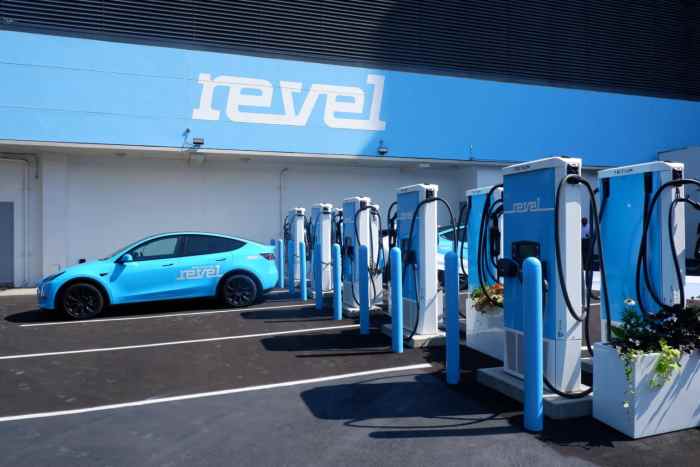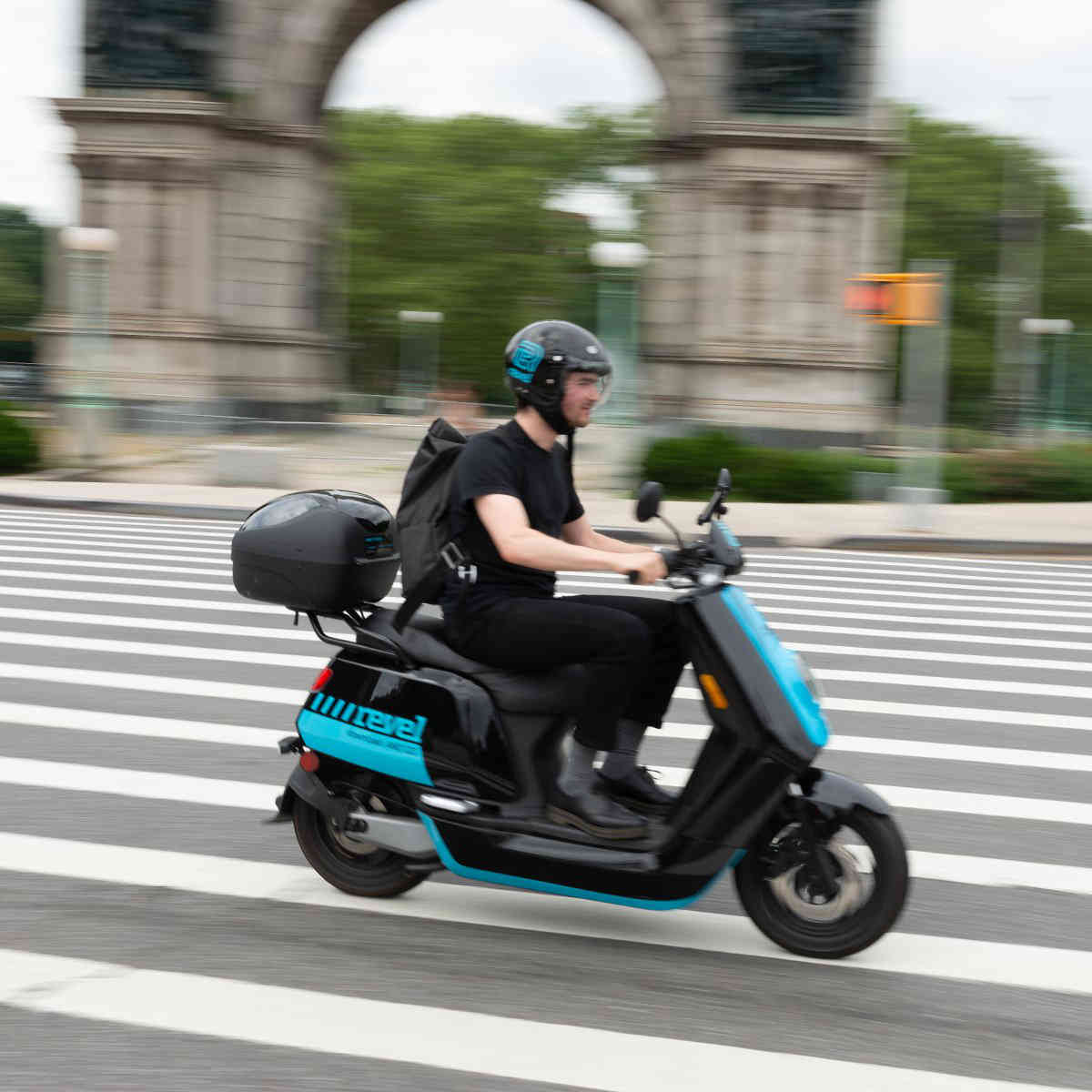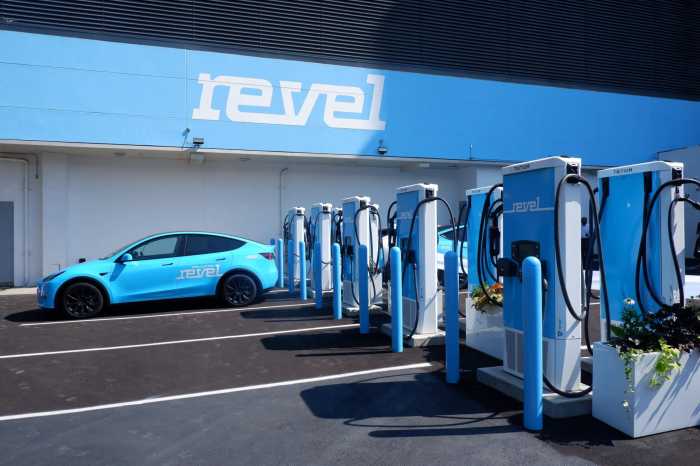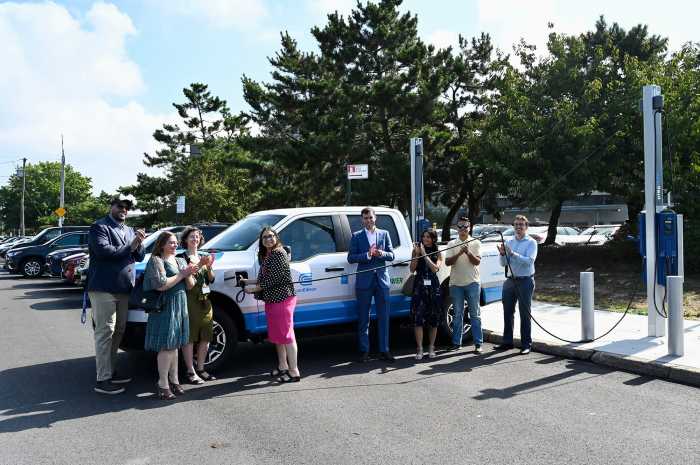Micro-mobility startup Revel will end its moped-sharing service this month, as the Big Apple company pivots its focus to its taxis and electric vehicle charging stations.
Revel’s distinctive blue electric mopeds, which could be seen all over the city, will be permanently deactivated on Nov. 18, according to an email to employees sent by CEO and co-founder Frank Reig on Friday.
“I went to our moped warehouse in Maspeth this morning and informed everyone there that this will be our last season offering mopeds in New York and SF,” Reig wrote. “The team took it as well as they could.”
Reig said in the letter that there was “clearly some relief” in the Maspeth warehouse, as the moped service had become more intensive to maintain even as fewer riders were using it. Workers had to keep swapping out batteries and charging mopeds on a regular basis, and do more costly maintenance as the mopeds aged.
The letter was viewed by amNewYork Metro and first reported by TechCrunch, which noted the company would be laying off around 67 employees.
The service started in a Bushwick storefront in 2018 with 68 mopeds, Reig said, and grew to encompass thousands of mopeds in several cities. Unlike Citi Bikes, Revel mopeds did not require a dock, and provided for a quick journey across town that could dwarf a ride in a car or public transit. The company also provided a helmet with each moped, and required riders to take a selfie in a helmet before starting their trip.
However, the mopeds faced some safety questions after a string of rider deaths, and the startup started to look at expansion opportunities, starting with a short-lived e-bike rental service.

Longer-term, the company started investing in a new, all-electric taxi service to compete with yellow cabs, Uber, and Lyft. After lengthy wrangling with the Taxi & Limousine Commission, the taxi plan was approved and launched in 2021, and the company now operates some 500 electric taxis, according to TechCrunch, mainly Teslas painted in the company’s signature light blue. Unlike Uber and Lyft, Revel’s drivers are full-time employees.
After hiccups, the company was able to start its taxi service using a loophole in the TLC’s cap on for-hire vehicles, which allowed new entrants provided they were electric. Last month, the TLC formally lifted the FHV cap, allowing a flood of new ride-hail vehicles provided they’re all-electric.
Revel has also invested heavily in EV charging stations around the city: the company has opened two fast-charging “superhubs” in Brooklyn and one in Queens in the past year, and plans to open more in the Bronx, Harlem, and lower Manhattan.
Amid its pivot to EVs, Revel downsized its moped fleet and pulled out of some cities, and the scooters saw both decreased usage and greater maintenance needs. A company spokesperson told TechCrunch that moped ridership had dipped 30% year-over-year in both New York and San Francisco, making the scooters unsustainable financially.
Still, in his email to employees, Reig took credit for changing the discourse around mopeds in New York. Mopeds have proliferated across the city in the past several years, especially among food delivery workers who have long used e-bikes. Unlike Revels, however, most of the new mopeds on the street today are gas-powered and unlicensed.
“Even though our Revel mopeds will be off the streets, you look around New York today and it’s undeniable that mopeds are here to stay,” said Reig. “Revel started that. I’m incredibly proud we can all share that legacy together.”
Read more: 23 Worst Things About NYC Subway Listed


































